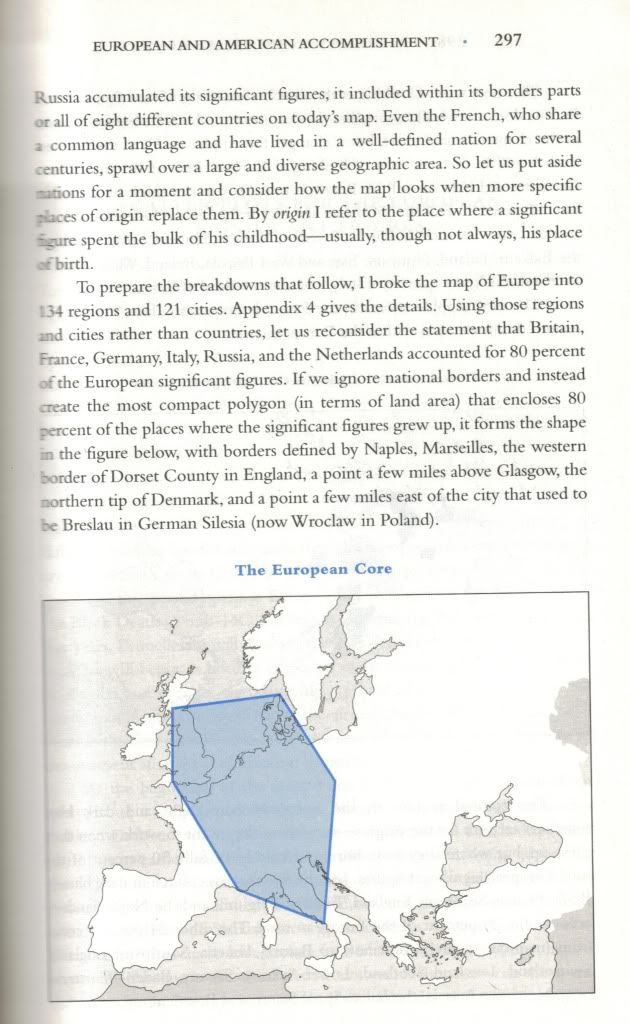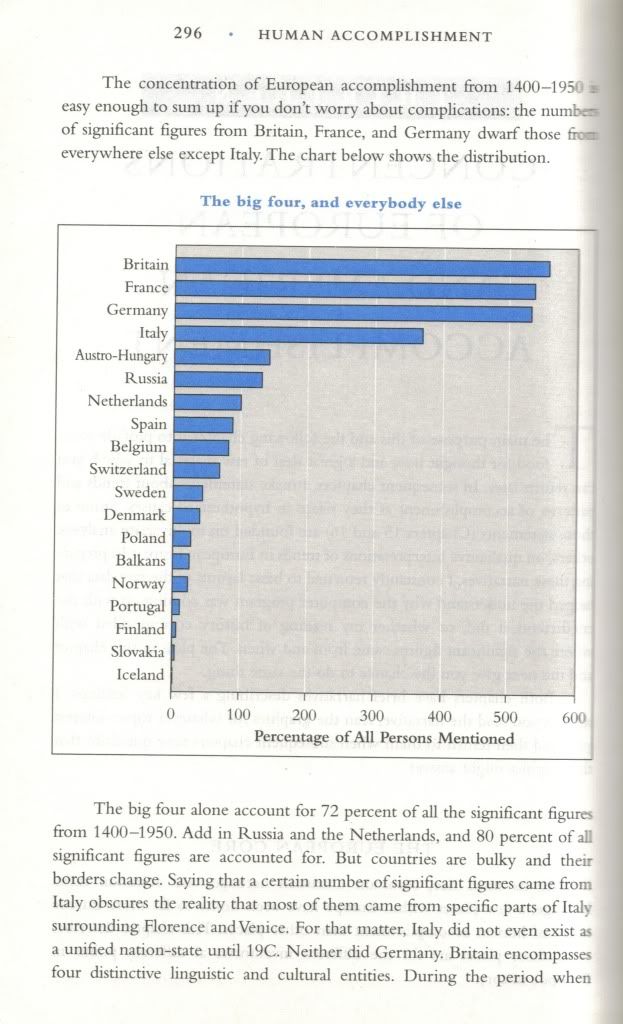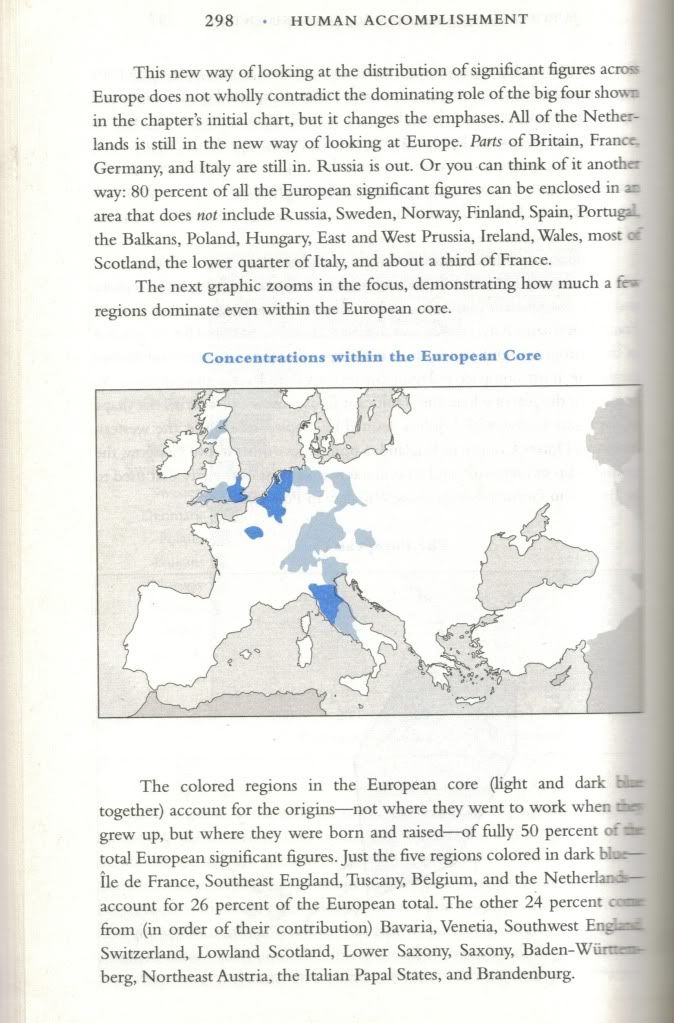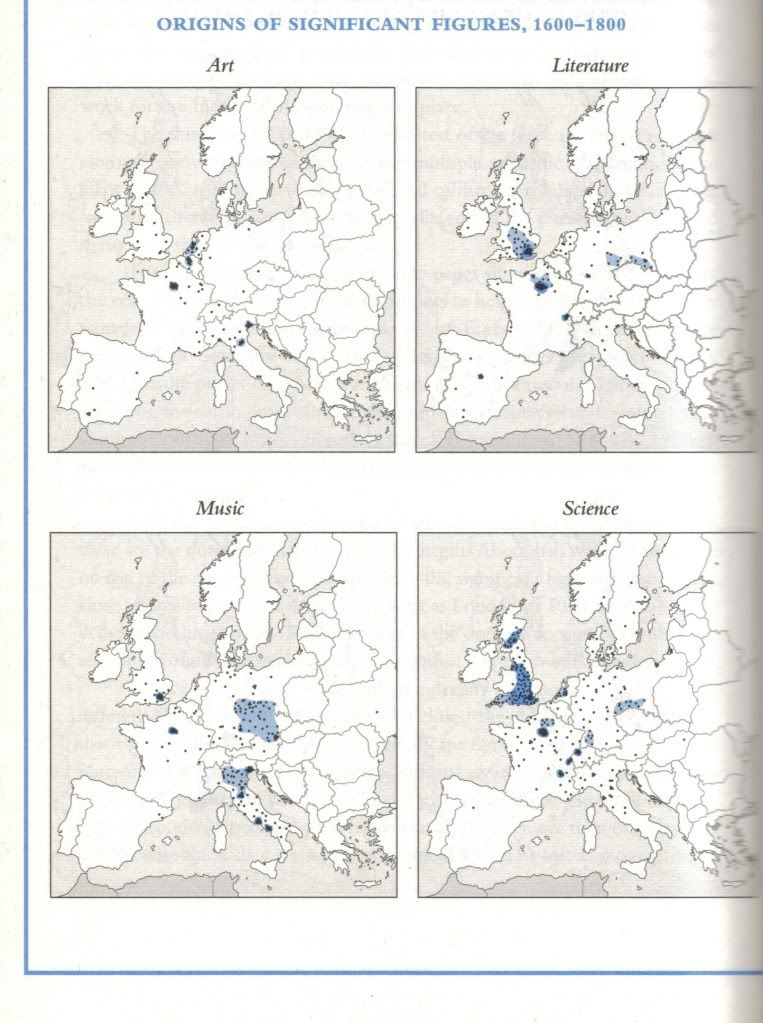There's a tendency among not only geneticists, but people interested in genetics, imo, to become very deterministic about it and attribute 100% of any differences between groups to genetic causes. I think that leads to sometimes false conclusions.
Does genetic inheritance matter? Yes, I think it does, but environment, and not, according to the studies I've seen, the "home" environment so much, but the "outside" environment, does have an impact. How a country is ruled impacts behavior, certainly economic behavior. As I said above, "history matters".
My take away is that since the Middle Ages those areas in Europe which either had local rulers who promoted trade and innovation, or local communes which did the same, and also had access to trade routes along rivers, seas, etc., where the people had the wit to take advantage of these circumstances, and where the local government basically then got out of the way and let capitalism flourish, were the areas which saw the most economic development, the most prosperity, and the ensuing flourishing of the arts, science, literature, etc.
It started in Italy, partly, perhaps, because there was more memory of commerce and urbanization, where some urban centers still existed, if in much reduced circumstances, and because the sea routes were not totally forgotten, nor the routes using the Po and then over the Alps. I think another important factor was that they were ruled by the "Holy Roman Emperors", who weren't, after all, the representatives of a unified, monolithic, authoritarian nation state, but of fractious and competing small states, and which emperors often maintained a rather tenuous hold on power themselves. As a result, the Italian cities were able to free themselves relatively easily, although at some cost, and form relatively free communes. The combination led to the rebirth of trade and commerce and then all the other advancements.
https://en.wikipedia.org/wiki/Medieval_commune
https://en.wikipedia.org/wiki/Italian_city-states
It then spread quickly to the low countries, where, as you explained, some of the same conditions existed. Amalfi, by the way, suffered much the same fate as you describe in Flanders. They were on the losing side of history and their flowering came to a relatively quick end.
Does that mean that they suddenly became stupid? Obviously not. There's a limit to what you can accomplish given certain circumstances. I do think it's true, however, that certain areas can experience a sort of "brain drain" when this happens. I worry about it in terms of Italy, I have to tell you. I see all these Italian names on genetics papers, but they're at foreign universities.
Anyway, this is all still operating to a certain extent, in my opinion. I saw the following map of GDP per individual in purchasing power posted on Razib Khan's twitter feed. He then wrote a blog post on it.
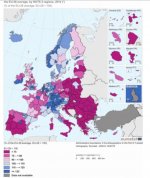
The data is from 2014. If my memory serves, it was even higher for Italy a couple of years ago.
In his Unz blog post on it he makes the "Habsburg Empire" connection, as did Peter Turchin, but they're not getting it quite right, in my opinion, as the fact that Spain/Portugal, also under their rule, lag behind, shows. It's not the greatness of the Habsburgs or the Carolingians and their policies that is important; it's the laxness of their rule in the "central corridor" which provided the freedom necessary for capitalism, added to the access to established trade routes and areas of high agricultural yield.
See:
http://www.unz.com/gnxp/
Turchin, leftist that he is, will probably never acknowledge this.




